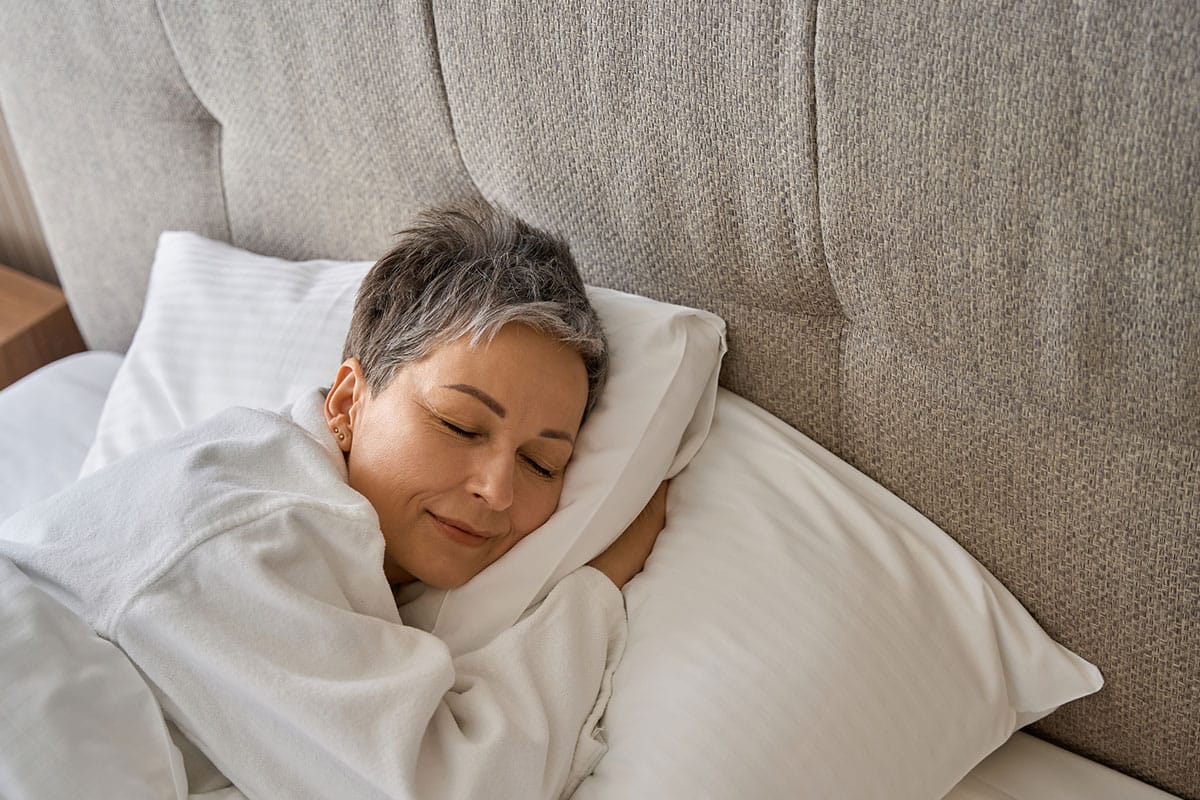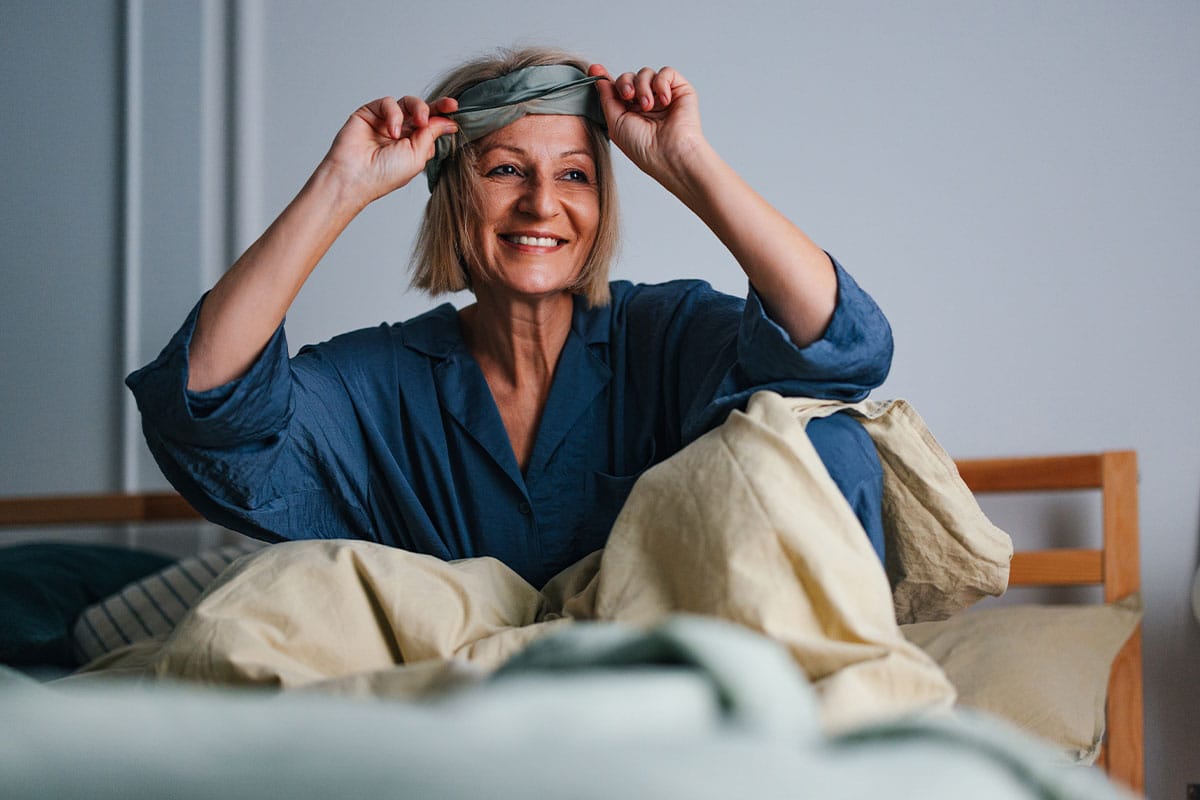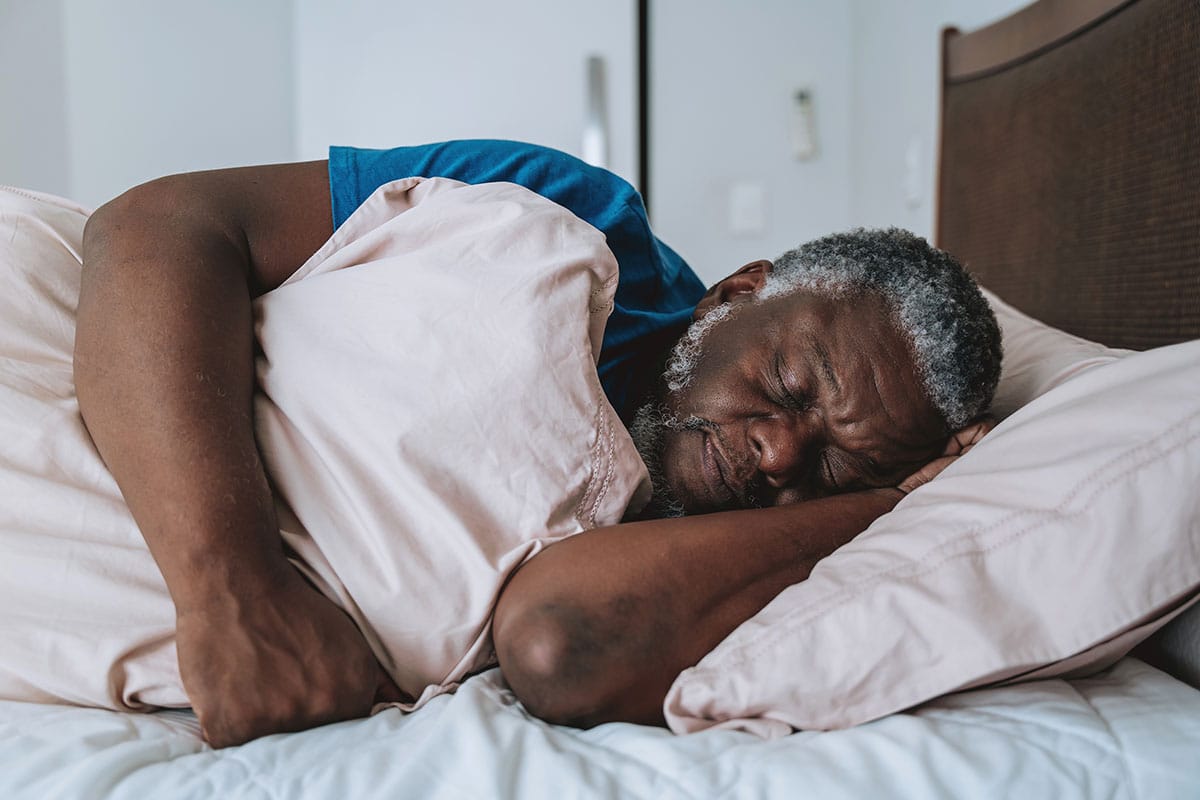Rest doesn’t come easy when biology is off. Some people lie awake for hours. Others fall asleep quickly but wake up wired at 2 a.m. Over time, the pattern chips away at recovery, mood, and focus.
Many turn to supplements for relief. Melatonin, magnesium, valerian, and even cannabis are common picks. The issue is that not every option works the same way. Timing, dose, and individual chemistry decide whether the result is deeper sleep or another night of frustration.
This guide breaks down the five supplements most often backed by research, how they work in the body, and where the red flags show up.
Top 5 Supplements for Better Sleep: At a Glance
| Supplement | Best for | How to take it | Side effects |
|---|---|---|---|
| Melatonin | circadian rhythm issues, jet lag, shift work | 0.5–5 mg in the evening, timed to local bedtime | headache, dizziness, nausea, daytime drowsiness |
| Magnesium | insomnia linked to low magnesium, restless sleep, muscle tension | 200–400 mg magnesium glycinate or citrate, 1–2 hours before bed | diarrhea, stomach cramps, drug interactions (BP meds, diuretics) |
| Cannabis (THC/CBD) | sleep disrupted by anxiety or pain | CBD: 25–75 mg; THC: 2.5–5 mg, usually as oil or capsule | grogginess, dependency risk, impaired memory, mood changes |
| Glycine | shallow sleep, poor next-day alertness | 3 g powder or capsule, 30–60 minutes before bed | mild GI upset, loose stools |
| Valerian root | mild insomnia, difficulty falling asleep | 300–600 mg extract, 30–120 minutes before bed | headache, dizziness, stomach upset, rare liver stress |

1. Melatonin
Best for: circadian rhythm problems like delayed sleep phase, jet lag from eastward travel, shift work sleep disruption
How to take it: 0.5–5 mg in the evening, timed to local bedtime
Melatonin is the body’s own sleep signal. As light fades, the pineal gland releases it under control of the brain’s circadian clock. Levels rise through the night, then drop toward morning to cue wakefulness.
As a supplement, melatonin works best for people whose timing is off—older adults, shift workers, or anyone adjusting to a new time zone. A meta-analysis of 19 trials showed it helped people fall asleep faster and stay asleep longer, with the strongest effects in delayed sleep cycles.
More than 5 milligrams doesn’t improve results and can even fragment REM if taken too early.
Melatonin is considered safe short-term. Side effects can include:
- headache
- dizziness
- nausea
- daytime drowsiness
Long-term safety isn’t clear, and it can interact with blood thinners or sedatives. Using it under medical guidance helps make timing and dosing work with your biology.
2. Magnesium
Best for: restless sleep, muscle tension at night, insomnia in older adults
How to take it: 200–400 mg magnesium glycinate or citrate, 1–2 hours before bed
Magnesium is one of the body’s quiet regulators. It keeps muscles loose, nerves steady, and the stress response from tipping too far. At night, it also makes GABA — the brain’s main calming signal — work more effectively. Stronger GABA activity helps the system shift from alertness to rest.
When levels run low, sleep often gets shallow and broken.
A trial in older adults found that magnesium supplements improved total sleep time, lowered cortisol, and even boosted natural melatonin production.
Another study that combined magnesium with zinc and melatonin showed the same pattern: easier time falling asleep, deeper rest, and better morning alertness.
Magnesium is usually safe when taken at the right dose. Side effects can include:
- diarrhea
- nausea
- abdominal cramping
Problems only tend to show up with very high doses or in people with kidney disease, where magnesium builds up and can affect blood pressure or heart rhythm. Checking in with a provider ensures the form and dose actually fit your biology.
3. Glycine
Best for: light, broken sleep and fatigue after short nights
How to take it: 3 g powder or capsule, 30–60 minutes before bed
Glycine is one of the simplest amino acids, yet it’s a major player in sleep.
Taken before bed, it lowers core body temperature. That drop in heat is part of what signals the brain to enter non-REM sleep. With glycine on board, the transition happens faster and the sleep that follows runs deeper.
In a 2012 trial with people with insomnia, three grams at night improved both the time it takes to fall asleep and the quality of rest. Even healthy adults who were forced into shorter nights performed better and felt less drained the next day when they used glycine.
At the standard dose, glycine is considered safe. Side effects include:
- mild stomach upset
- loose stools when the dose runs too high
Glycine is a quiet tool. It doesn’t knock you out, but it can make sleep steadier and mornings clearer when nights are too short.

4. Valerian
Best for: mild insomnia, trouble falling asleep
How to take it: 300–600 mg extract, 30–120 minutes before bed
Valerian is a centuries-old natural sedative. The valerenic acid in valerian binds to GABA receptors in the brain and strengthens their calming effect. With stronger GABA activity, the nervous system slows down and sleep comes easier.
Research on valerian is inconsistent. Some trials show no clear benefit, while others report shorter time to fall asleep and better sleep quality. A review of 18 clinical trials found enough evidence to suggest valerian can improve sleep onset and subjective quality, but not every study agreed.
Valerian is safe for most people at standard doses. Side effects include:
- headache
- dizziness
- stomach upset
The bigger risk comes when valerian is combined with sedatives like benzodiazepines, where the overlap can cause excessive drowsiness. Anyone on prescription sleep aids should check with a provider before trying it.
Valerian doesn’t work for everyone, but for people with mild insomnia it can be a gentle option to ease into sleep.
5. Cannabis
Best for: insomnia linked to anxiety or pain
How to take it: balanced CBD:THC oil or capsule, usually starting with CBD 25–75 mg and THC 2.5–5 mg in the evening
Cannabis is not the place to start if you’re struggling with sleep. Most people should try safer, better-studied supplements first. If melatonin, magnesium, or other approaches haven’t helped, and your doctor believes cannabis is appropriate, it may be worth discussing.
The plant works through two main compounds:
- THC helps people fall asleep faster
- CBD makes sleep steadier by reducing night wakings and improving efficiency
One clinical trial tested an oil that combined both. After two weeks, most participants no longer met the criteria for insomnia. Their melatonin levels rose, sleep quality scores improved, and they reported better functioning during the day.
In everyday use, results are less consistent. Heavy or frequent use, especially edibles, is often tied to worse sleep quality. CBD appears more reliable than THC, and older adults may see more benefit because their bodies process CBD more slowly.
Side effects include:
- morning grogginess
- dependency with frequent use
- changes in mood or memory
- unpredictable potency across products
Cannabis can be useful when pain or anxiety block sleep, but it is not a cure-all. The ratio of CBD to THC, the dose, and the timing decide whether it helps or disrupts rest. A provider’s oversight makes the difference between targeted relief and another source of broken sleep.
Other Natural Remedies for Deep Sleep
Supplements can help, but the foundation of sleep comes from your night routine and environment. When those are off, even the best supplement will fall flat.
Sleep hygiene strategies that consistently improve rest include:
- Keep the same hours: A steady bedtime and wake time train the circadian clock. Shifting back and forth makes it harder to fall asleep.
- Cut stimulants early: Caffeine can stay in the body for half a day. Coffee or tea in the afternoon often shows up later as restlessness in bed.
- Limit alcohol: A drink may make you feel drowsy, but alcohol fragments deep sleep and increases night wakings.
- Use light as a cue: Bright light in the morning strengthens circadian rhythm. Darkness at night signals melatonin release.
- Cool the bedroom: Most people sleep best in a room around 65–67°F (18–19°C). A drop in core body temperature triggers sleep onset.
- Wind down on purpose: Reading, stretching, or a warm bath helps shift the nervous system into rest mode.
- Keep screens away from the bed: Blue light from phones or TVs delays melatonin and keeps the brain alert.
- Anchor sleep with calming cues: Chamomile tea or lavender scent can reinforce the body’s signal for rest.
- Move during the day: Regular activity, even walking, steadies circadian rhythm and lowers stress hormones.
- Reserve the bed for sleep: Avoid working or scrolling in bed. The brain learns to link the space only with rest.
These basics sound simple, but they decide whether supplements can add value or not. Without them, poor sleep usually persists no matter what’s in the capsule.
How to Choose the Best Sleep Supplements
Supplements only work when they match the reason sleep is broken. Each one sends a different signal, and the wrong signal often makes nights worse.
- Match the supplement to the problem: Melatonin helps when circadian rhythm is off. Magnesium helps when muscles stay tense or sleep feels restless. CBD may help when anxiety or pain drive insomnia. Glycine deepens shallow sleep. Valerian may ease mild trouble falling asleep.
- Start with the lowest effective dose: Higher doses don’t improve results and often create side effects.
- Check the quality: Third-party testing reduces the risk of contamination or mislabeled potency, which is common in over-the-counter supplements.
- Use short trials, not open-ended use: Most studies test these supplements for weeks, not years. Reassess after 4–6 weeks.
- Talk with your provider: Interactions with medications are common. Sedatives, blood pressure drugs, and blood thinners are the most frequent conflicts.
Supplements can help restore sleep, but only when they fit the biology behind the problem. Without that match, results are hit-or-miss.

When Are Supplements Not Enough for Sleep Problems?
Supplements can support sleep, but they can’t fix medical problems that break it. When the root cause is biological, capsules won’t touch the real issue.
- Hormone imbalance affecting sleep: Shifts in cortisol, thyroid, estrogen, or progesterone disrupt circadian rhythm and keep the body alert when it should be at rest.
- Sleep apnea or restless leg syndrome: Breathing pauses and nighttime movement fragment sleep no matter how many supplements are on board.
- Psychiatric or chronic illness: Anxiety, depression, or ongoing pain override the brain’s natural sleep drive.
When these conditions are in play, the next step isn’t to add another supplement. It’s to run the right tests and build a treatment plan that addresses the underlying biology.
When to See a Doctor for Your Insomnia
Some sleep problems point to more than bad habits. A doctor’s workup is the next step when:
- sleep problems last longer than three weeks
- snoring, gasping, or limb movements wake you up
- fatigue persists even after 7–9 hours in bed
- anxiety or depression symptoms worsen alongside poor sleep
Hormonal shifts also play a role. Many women notice new insomnia during perimenopause and sleep disruption that continues into menopause. Hot flashes, night sweats, and changes in estrogen or progesterone can all keep the brain from settling into deeper stages of rest.
At that point, supplements alone won’t fix the problem. A medical evaluation can uncover conditions like apnea, thyroid shifts, or mood disorders that block restorative rest.
Better Sleep Doesn’t Come From a Bottle
The five supplements we walked through — melatonin, magnesium, cannabis, glycine, and valerian — each act on different parts of the system. They can shorten sleep latency, deepen rest, or reduce nighttime waking, but none of them are universal fixes.
When sleep stays broken, the cause is usually bigger than a missing nutrient. Hormones shift, medical conditions interfere, or stress biology takes over.
The real takeaway is simple: supplements provide nudges, not cures. Lasting rest comes from finding the disruption in the system and addressing it directly.
Built on Biology, Designed for You
Every client at Yunique Medical begins with a clear readout of what the body is doing — hormone balance, nutrient status, cellular health, and cardiovascular resilience. From there, strategies are designed around the individual, not the symptom.
If supplements belong in the plan, they sit alongside targeted therapies and regular tracking. The goal is alignment, not guesswork, so the system can recover and stay strong.
Our Services
We offer a wide range of services to support your wellness journey, including:
- Hormone Optimization
- Infusion Therapy
- Weight Loss Programs
- Cellular & Functional Medicine
- Precision Longevity
- HeartFit Program
- Sexual Enhancement
- Peptide Therapy
- HOCATT Biohacking
Our Locations
You can find us here:
- Port Orange, FL
- Lady Lake, FL (formerly Fruitland Park Office)
- Ocala, FL


